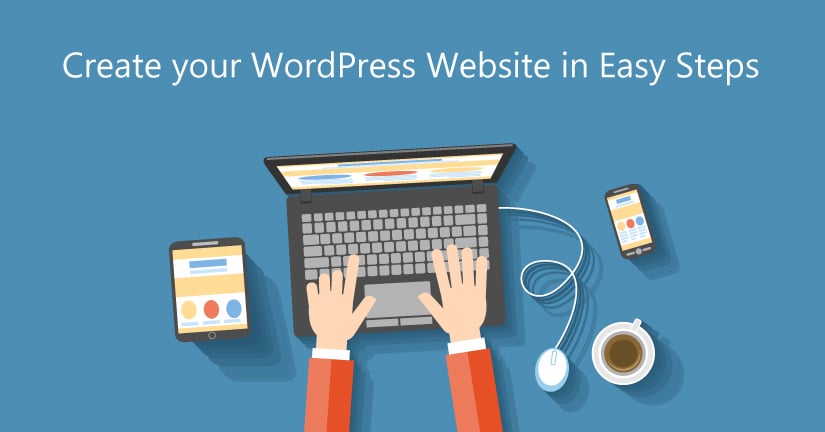Which Hosting Platform is the Best for WordPress – VPS, Dedicated or Shared?

Finding the right hosting for your website has always been a thoughtful decision. And it becomes brainstorming when you add a Word Press to the equation. Regardless of the number of WordPress website you’re hosting, your hosting platform must be customized to suit your needs while providing a high quality experience to your visitors.
Let’s look at the various hosting options available to most website developers:
VPS (Virtual Private Server) Hosting
This option of hosting is like owning a part of the building having privilege with private access to your part and no one has access to your part without your permission. With a VPS hosting platform, however, you don’t have a dedicated server, but you share the resources of a dedicated server with several other users. Now an obvious question arises – What’s the difference between a VPS hosting and a Shared hosting?
The answer to your very reasonable question is that- with shared hosting, the provider wants to put as many users as possible on a single server. With VPS hosting, in contrast, the provider don’t put many users, as you pay higher than with shared hosting. Also, VPS systems are normally set up with reseller account so that you can put multiple websites for your clients and can charge them.
With best WordPress VPS hosting platform, you’re allocated a part of all server resources, and you’ll have certain percentage of resources available. By this configuration, you’ll always get to know the percentage of resources available with you.
With this hosting platform, you may not be able to run scripts of your choice. If your provider is kind enough, they can run scripts for you. Besides, you may not have root access and you may not be able to do server settings yourself, however, some hosting providers do this if users request to do so. And so far security is concerned, you yourself will be responsible always, but it’s safer than shared hosting.
Dedicated Server Hosting
This is the second hosting option wherein you have your own dedicated server; similar to owing the entire building. With dedicated server hosting, you determine who all are the websites and can remove them if their contract is up or have stopped paying. You can either own and maintain your own machine or can rent/lease/buy one in a data center. You have authority to set the rules and manage the entire process in the dedicated server hosting. Other things that make dedicated hosting stand apart are:
You’ll have root level access: However many managed dedicated server hosting providers don’t allow their users root-level access to the server, you can get it upon request.
You’ll be allowed to run scripts that you need to run: Since it’s your own server and you’ve paid for it, you’re allowed to run any script that you want on your server. However, there’re some dedicated servers (usually managed dedicated servers) that may not allow you to run scripts that haven’t been scrutinized by the provider.
You’ll be allowed to adjust server settings: You’ll be permitted to tweak any server settings that you need in this hosting platform. You can make your upload size large or small whatever you want.
You are responsible for security: Security is one of the major concerns that you’ll have to take care of yourself. Securing all of your websites, you can ensure that there will no website become compromised or at risk.
Shared Hosting
The third and last option is Shared hosting. This platform of hosting is widely offered and normally used by the people who have just started to build websites. The reason is – it’s the cheapest and quick to get started without hassle.
Shared hosting is like a multi-family building, wherein you live in a portion, and you don’t know all of the families living there. In shared hosting also, you don’t know your virtual neighbors but share the same IP address. If any of them do something unethical or illegal that can cause search engines to flag their IP address, your website might be on risk as well.
You won’t get root level access:
If you’re just a beginner, you may not require root-level access to your server; but over a time you may need it. Without having root level access, you’ll probably not be able to install software, restore from back-ups or do any updates to your services.
You’ll not be allowed to run scripts that you need to run:
Usually shared hosting providers don’t allow their users to run scripts that are not prescribed by them. Which means if you need to run a specialized script that is not in your provider’s list, you may not be allowed to do so. Besides, many commands may be blocked for you.
You won’t be permitted to adjust server settings:
Under this arrangement of hosting, you won’t be allowed to adjust things like maximum file size to upload.
Security:
Security is probably the scariest area attached to this hosting platform. If any of the users on the server doesn’t secure his website adequately and cracker gains access to his website, in the case, he may use that access to crack into every other website hosted on the server.
Now I’m sure you’ll be able to choose best suited hosting platform for your WordPress website. The most important thing is what your needs will probably be. Will you need scripts to run? Will you need root level access to the server? And, How important the website security? Spend your time considering on the various factors attached to the hosting. Don’t always keep money the only factor to choose your hosting platform.





